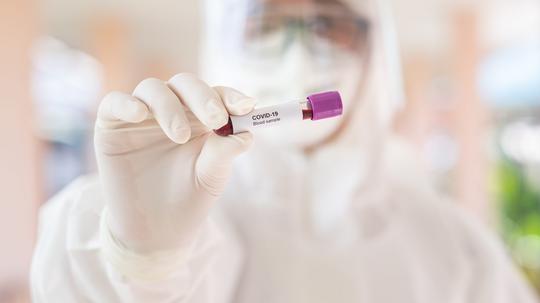
As health care workers across the country face ongoing shortages of personal protective equipment, scholars and clinicians at the University of Rhode Island, Brown University, Rhode Island Hospital and a vast array of other local institutions are taking matters into their own hands.
Out of the University of Rhode Island (URI), a group led by Kunal Mankodiya, associate professor of electrical, computer and biomedical engineering at the university's College of Engineering, has facilitated the creation of hundreds of components of protective equipment like masks and face shields.
It started with a WebEx meeting just over two weeks ago. Mankodiya and two other URI faculty members, along with an epidemiologist at Brown, were discussing designs for ventilators and face shields as well as the challenges of making N95 respirators and surgical masks.
From that initial discussion, a movement was born. Mankodiya and his associates grew to 15 members within the first 48 hours. Now, there are more than 75 people in the group, which calls itself the "Rapid Responders."
"All this came from different people," Mankodiya told Rhode Island Inno. "I am helping coordinate remotely while we are all social distancing. It is a struggle. Everybody has to stay away, but at the same time, we all need to contribute. We are trying to manage effectively."
The Rapid Responders include people affiliated with URI, Brown, FabNewport, the Rhode Island School of Design, Rhode Island Hospital and, at a state level, Rhode Island Commerce, Mankodiya said.
The designs for the various parts being manufactured come from a variety of different places. Makerspace URI is relying on blueprints created by Prusa, a developer of 3D printers based in the Czech Republic, according to Rapid Responder member and scholarly technology lab manager at URI Libraries Erika Uzmann. Other Rapid Responders are using various online tutorials, Mankodiya said.
Clinicians with Rhode Island Hospital have partnered with the Rapid Responders to test the designs. Additionally, Mankodiya said, representatives from the hospital are usually on the WebEx calls, which now take place every three or four days, to let the printers know what their needs are.
"It's a really rapid process," Mankodiya said. "Normally, taking a scientific route would take two to three months minimum to go through the process of publishing in a journal and getting peer review. Here, working directly with doctors and experts in the clinical fields, as well as the 3D-printing experts, bringing them all to the same meeting, we all discuss those problems. It is very effective. In a one-hour meeting, you can think about solving a lot of issues."
At the URI libraries, Makerspace URI is equipped with six 3D printers, a laser cutter, two VR headsets, a 3-D scanner, two vinyl cutters, a sewing machine and a digital embroidery sewing machine, according to a press release from the university. When it comes to the 3D printers, the main focus is headbands for face shields used by health care workers treating patients with COVID-19, the respiratory illness caused by the novel coronavirus.
Uzmann and a student worker at Makerspace URI will have printed more than 50 headbands by the end of the week. Uzmann told Rhode Island Inno that the team is still waiting on some other parts to come in—a challenge, given that even volunteers and hobbyists are dealing with shortages.
The URI College of Engineering has also taken 3D printers from elsewhere on campus—which is largely empty, given that URI transitioned to remote learning several weeks ago—and put them together in what Mankodiya calls a "printer farm." In the coming weeks, Rapid Responders plan to host live tutorials on YouTube to expand the effort beyond the Rhode Island institutions that are already involved.
Today, shortages of personal protective equipment have become so dire that the Food and Drug Administration, which is responsible for approving such equipment for clinical use, has begun to advise hospitals to use expired gowns and surgical masks. Masks, surgical gowns and eye gear required to protect health care workers from the coronavirus are all in short supply.
Positive cases of the virus in Rhode Island now stand at 1,082. Twenty-seven Rhode Islanders have died, according to the state Department of Health.
"Unfortunately, hospitals just aren't able to get ahold of the equipment that they need," Uzmann said. "It's forcing makerspaces and hobbyists to get involved and do what they can. I feel like it's more based on need at this point than anything else. People want people want to feel like they're contributing."








